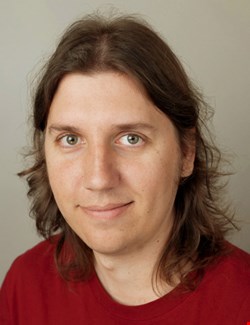

I recently had an eye-opening experience. My wife confessed to me, in tears, that she liked Justin Bieber’s music. She asked for forgiveness, as I walked out of the room mumbling some unrepeatable curse words.
My wife used to like Led Zeppelin, Nine Inch Nails and similar stuff. But I don’t blame Bieber for her succumbing to the dark side; she has played with fire already, listening to Enrique Iglesias once before.
Wanting to know more about this presence that has invaded our home, I looked at some astonishing numbers:
- Justin Bieber Facebook Likes: 49,099,489
- Twitter followers: 31,669,208
The invasion was for real, and it was on my doorstep.
As a reference, Andrew Hay is considered by many to be the Bieber of Information Security. When it comes to the voice, the looks and teenie followers, he doesn’t compare. Just take a look at the following stats:
- Andrew Hay Facebook Likes: doesn’t even have a fan page.
- Twitter followers: 4,398
Anyway, how does this relate to our favorite subject – information security?
We read in the news every day that we are essentially in an arms race, a race that we have failed to win or even keep up with so far. The anti-virus and endpoint security industry has been failing miserably for 20 years now. The ‘why don’t we write good code for starters’ technology is not there yet, and won’t be until people start dying because of bad code; and then there are the categories of detection, awareness, and remediation, all of which are being hotly pursued by vendors small and large.
Where does our teenie idol Justin fit in all of this? Well, Justin Bieber holds the power to change this. We will never be able to convince those 40 million plus hormone-laden teenagers to take up IT security, share attack data, code better or help spread the gospel of security. But one word from Justin, one message to his minions, and we’d have quite a few enthusiastic helpers in the fight against cybercrime. It may not be 40 million, but even if 10 million of his fans took note, then imagine the impact this could have.
Think about it for a moment. Instead of Justin saying or writing things like this during a performance or on Facebook:
- “People write to me and say, ‘I’m giving up, you’re not talking to me.’ I just write them a simple message like, ‘Never give up,’ you know? And it changes their life.”
- "I'd like to be an architect. That would be cool. I like drawing."
- "I also try to read all of my fan mail. A lot of them send me candy, which I'm not allowed to eat 'cause my Mom says it might be poisonous."
He could be directing all this force to spread information security awareness, by saying things like:
- “Let us not look back in anger or forward in fear, but around in awareness.”
- “The user's going to pick dancing pigs over security every time.”
- “If you reveal your secrets to the wind, you should not blame the wind for revealing them to the trees.”
- “Computers let you make more mistakes faster than any invention in human history – with the possible exceptions of handguns and tequila.”
(Quotes and attributions from Native Intelligence; none of them are mine)
This is a wake-up call. Without a high-profile spokesperson to fight in the corner of information security and educate younger generations, the future of the internet as we know it will be lost too.
Now is the time for the security world to find its own Bieber, to pick up the gauntlet and raise a security-conscious generation.
Dominique Karg is a co-founder and chief hacking officer of AlienVault.
http://www.alienvault.com/